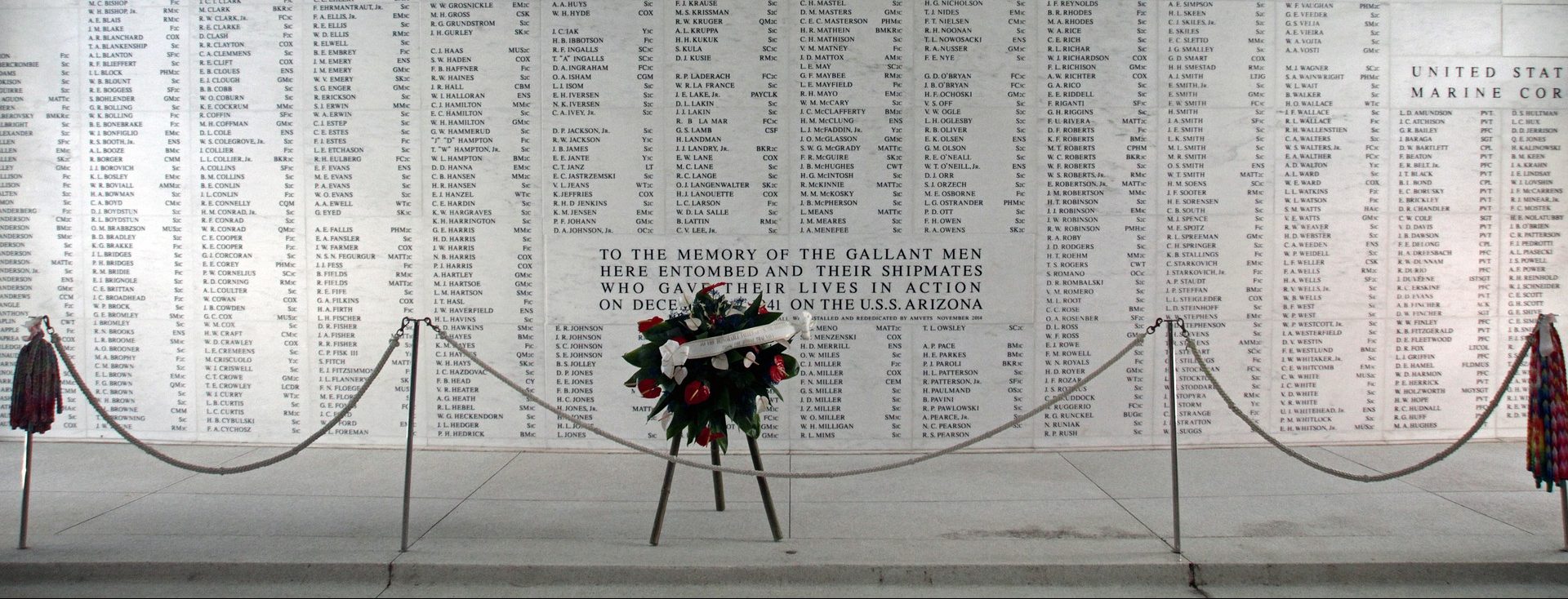This excerpt was taken from Two Hundred Tuesdays: What a Pearl Harbor Survivor Taught Me about Life, Love, and Faith by Dianne Derby. If you’d like to glimpse into the life of a committed disciplemaker, you will encouraged and strengthened in your faith in Jesus.
A friend once told me that one of the best things I can do for my professional life is to write handwritten notes. Rather than sending emails and texts, I write notes using an actual pen on actual paper. That practice has served me very well. I love a good handwritten note.
But Jim Downing took the handwritten note to a whole new level.
Jim was a gunner’s mate first class and the postmaster onboard the USS West Virginia in 1941. It was his job to deliver love letters from wives, updates from children, and care packages from parents to the men onboard the ship. He got to go home every night to his young bride, Morena— they were newlyweds, married only a few months—and they often hosted men for breakfast on the weekend. The day he tells me about Pearl Harbor,1 he tells me first about those mornings, about his wife in her apron, serving up bacon and eggs to hungry men who loved a good, hearty breakfast.
Their home was in Honolulu, on Oahu’s south shore, about twenty minutes from the harbor. On the morning of December 7, 1941, Jim and his companions heard a distant explosion, and then suddenly the alarmingly nearby shriek of an incoming shell racing over the roof and crashing into his backyard.
A Moment That Will Live in Infamy
One of the men turned on the radio in the corner of the room to hear the broadcaster say, “I have phoned army and navy intelligence, and they have advised us that the island of Oahu is under enemy attack. The enemy has not been identified. Stay tuned. We will give more information when we get it.” Something was very wrong.
The other men were in uniform, but, Jim says, he was wearing a Hawaiian shirt. He tore into their bedroom to change into his uniform so he could follow the sounds and the smoke with the others.
When he came out of the bedroom, he heard the latest update: “Pearl Harbor is under enemy attack. The enemy has been identified as Japan. All servicemen return to your ship or station.”
Just before Jim joined two other sailors in his friend Herb’s car to go to the harbor, he turned to face Morena, for maybe the very last time. He kissed her face, and as he jumped into the car, she shouted, “Deuteronomy 33:27! ‘The eternal God is your refuge, and underneath are the everlasting arms.’” As his car pulled away, he saw the tears in her eyes. She was, he tells me, still wearing her apron from fixing breakfast.
What a woman. I picture myself in that same situation, an inferno of flames, shrieks, planes, explosives, and complete chaos. I would have grabbed my husband and begged him not to go, but Morena was selfless and courageous, commissioning him to go. Goodness. The closest I have come are at the many deployment ceremonies I’ve covered for the news, when I watch these families say goodbye to their troops, with no promise or certainty that they’ll see them again. Military families are a wonder to me. An absolute wonder.

The car raced through the neighborhood streets of Oahu, and it took Jim and his friends much longer than the usual twenty minutes to get to their stations, since roads were now packed with other cars filled with men on the same mission.
Jim describes what the scene looked like as he and his friends arrived within view of Battleship Row. Japanese planes zigzagged the sky, diving at the harbor. There was devastation and horror all around, and everything above the waterline was on fire. One ship was upside down, another was spewing smoke like a volcano. Jim’s ship, the USS West Virginia, was sinking and on fire. Oil had spilled from holes in the damaged ships, and the water was on fire. The men who had jumped or been thrown from their vessels were burning alive.
Jim knew immediately that many of his friends were already dead.
As he was trying to get near his ship, a Japanese plane flew so low that Jim threw his body to the ground just as the machine gunfire opened on him and his group. He tells me that the experience was burned into his memory: the pulsing in his ears, even the image of the pilot’s face. The plane was so near to the ground that Jim could see the pilot’s goggles and the whites of his eyes and his teeth.
Jim picked himself up off the ground, determined to get to his ship. He climbed onto the nearest vessel, the USS Tennessee, knowing that his ship was just on the other side of the opposite railing. It was too far to jump, but the barrel of a gun stretched across the water and just over the railing of the USS West Virginia. So Jim climbed up and over, before sliding down onto the deck of his ship.
He found himself aboard a nearly abandoned vessel that had lost all power. The fire had spread from the bow to the middle, and the flames were already upon the lockers that stored the ammunition. Without power, he couldn’t fight back— he could only fight to protect what was left.
Jim grabbed a fire hose that stretched over from the USS Tennessee and sprayed down the flames that were threatening the ammunition lockers. The ship was covered in yards of thick, flammable paint that would make a great fire. He tells me that he knew he was battling a ticking bomb: “I knew, I’ve got to put out the fire so there won’t be a secondary explosion. Or this will be the end.”
Honor Among the Chaos
He saw one body after another, crewmen lying on the deck—men with stories, with families and friends. Jim walked down the deck, spraying water toward the flames, and memorized the names of his comrades. It was a small and painful offering, to be able to give closure to the people who loved these men, but Jim was determined. When he could not identify their faces because of the burns, he searched for their dog tags.
Japanese fighter planes continued to attack. Jim manned the fire hose and prayed, “I’ll see you in a minute, Jesus.” Jim believed he would be killed, and he wasn’t afraid of the end. For more than a half hour, he battled the flames, memorizing the names of his friends and expecting to meet God at any moment—and feeling completely at peace.
A second wave of Japanese attacks struck the harbor, and the ships continued to take fire from the enemy until finally it was over. The USS West Virginia sank under the weight of the damage.
Jim describes to me the emergency burn unit outside the navy hospital, where he visited a friend that afternoon. Many of the men were blind from the explosions, and their hair had burned off. He says he went down the line and spoke with each soldier, some of them blinded and others wounded in other debilitating ways, and he told them, “If you dictate a note, I’ll see that your parents get it.”
A True Hero
I stare at him in awe and ask, “Jim, what did they say to their parents? What does a person say in those moments?”
“Well, these guys stayed optimistic, assuring their families there was nothing to worry about. They told me to write things like ‘Don’t worry about me; I’ll be alright,’ even though they knew they wouldn’t make it through the night.”
I know he doesn’t like to hear it, but I just have to say it. “Jim, you are a true hero.”
He replies, “I felt proud of the way that our men responded so valiantly—unarmed and without leadership. I was so thankful to them, for them. Everybody was a hero that day.”
He’s quiet a moment, then says, “It wasn’t difficult for me to write those letters to their parents—each one took only a few minutes.”
I remember that Jim had also taken the time to memorize the names of his dead crewmates that very morning, when under attack. At a critical juncture when he could have defended himself, when all evidence appeared he was moments away from his own death, he showed total kindness to others. He focused all his efforts on saving the ship but also honored each individual who had just given their life. I realize now why I have trusted Jim from the moment I met him. He is the embodiment of integrity, honor, and kindness. He’s everything I aim to become.



